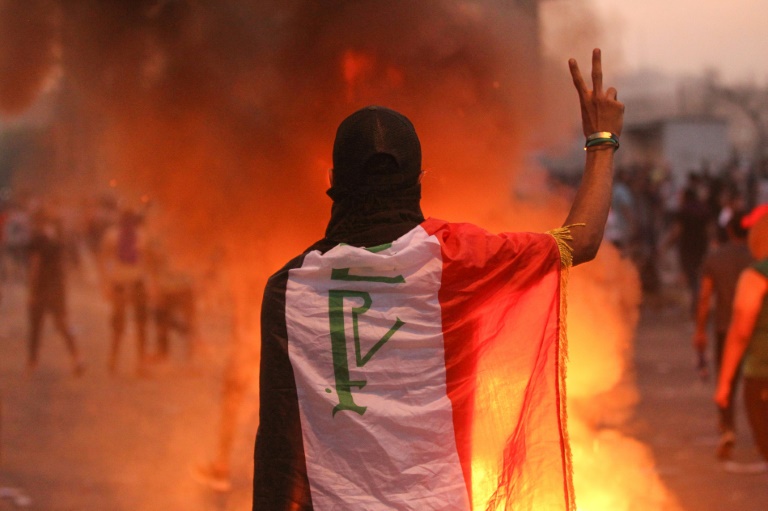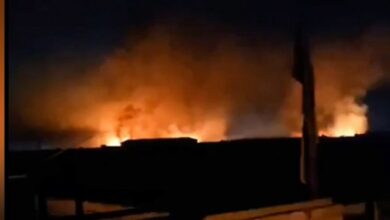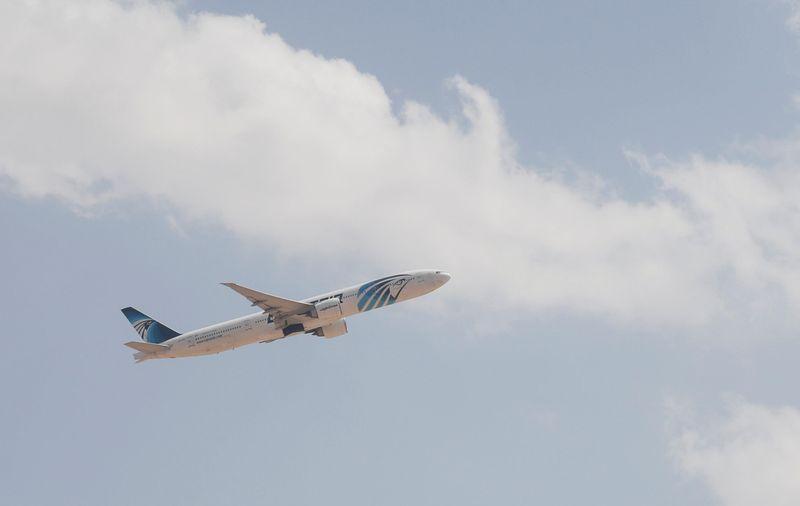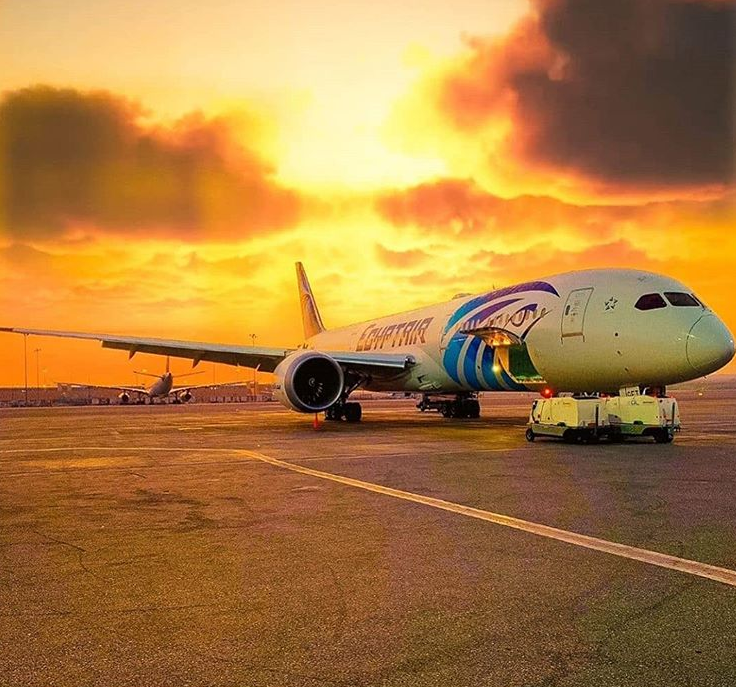
Iraqi security forces fired live rounds on Thursday to break up protests held for a third day in Baghdad despite an open-ended curfew in effect since dawn.
Prime Minister Adel Abdel Mahdi ordered the ban on movements across the capital starting at 5:00 am (0200 GMT) to stem the popular demonstrations over widespread unemployment and state corruption.
The chaotic protests and ensuing clashes with riot police in Baghdad and several southern cities have left 12 protesters and one police officer dead.
On Thursday morning, riot police fired in the air to disperse several dozen protesters gathered in the emblematic Tahrir Square in defiance of the curfew, an AFP photographer said.
“We slept here so the police don’t take the place,” one demonstrator told AFP before being pushed back en masse by police officers into adjacent sidestreets.
Tensions have been exacerbated by a near-total internet blackout, the closure of government offices in Baghdad and calls by firebrand cleric Moqtada al-Sadr for “a general strike.”
Before dawn twin explosions hit the Green Zone, where some ministries and embassies are located and which was struck by two rockets last week, a security source in the area told AFP.
The apparent attack came hours after security forces sealed off the Green Zone “until further notice” just a few months after it was reopened to the public, fearing angry protesters would swarm it.
Death toll rises
Overnight, two protesters were killed in the southern city of Kut after they tried to storm a local government office, medics and security sources told AFP.
Another two demonstrators died further south in Nasiriyah, which has so far seen the deadliest protests with a total of eight protesters and one police officer killed.
And two have died in clashes in Baghdad, bringing the nationwide toll in the protests since Tuesday to 13 dead and more than 400 wounded, according to health authorities.
Riot police in the capital have used water cannons, tear gas, rubber bullets and live rounds in an attempt to force protesters out of Tahrir and other areas in Baghdad.
Into the night on Wednesday, marches from different parts of the capital attempted to converge on the square, whose name means “liberation” in Arabic.
But with internet access virtually shut, demonstrators have struggled to communicate with each other or post footage of the latest clashes.
In the holy city of Najaf and in Nasiriyah on Wednesday, security forces fired on protesters and curfews were also declared.
The protests appear to be largely spontaneous so far, with angry crowds carrying Iraqi flags and shunning any involvement by the country’s main political players.
Many traditional figures have expressed their support for the movement, with Sadr urging “peaceful demonstrations.”
He was behind the last round of major protests in Baghdad in 2016, when his supporters stormed the Green Zone, but his involvement appears much more limited this time.
‘De-escalation needed’
On Wednesday night, the top United Nations official in Iraq, Jeanine Hennis-Plasschaert, met with some protesters in Baghdad to call for “direct dialogue” between them and government officials.
“The ability to preserve the right to protest is a sign of political and democratic maturity. Moreover, the use of force only fuels the anger,” she said in a statement.
“De-escalation is urgently needed.”
The violence drew a slew of criticism from Iraqi leaders including President Barham Saleh, and parliament has demanded an investigation into the incidents.
The protests follow months of simmering frustration over rampant power cuts, water shortages and state corruption.
But anger over staggering rates of youth unemployment, which is around 25 percent or double the adult rate according to the World Bank, appears to have set off this particular round of demonstrations.
“We want jobs and better public services. We’ve been demanding them for years and the government has never responded,” said Abdallah Walid, a 27-year-old protester.
Demonstrations over similar issues engulfed the southern city of Basra last summer and effectively ended previous premier Haider al-Abadi’s chances of a second term.
Abdel Mahdi now faces a similar challenge just weeks before his government marks a full year in power.
He called for the curfew after convening his national security council for an emergency meeting on Wednesday.
Abdel Mahdi has also blamed the violence on “aggressors who… deliberately created casualties,” a statement met with rage by protesters.




